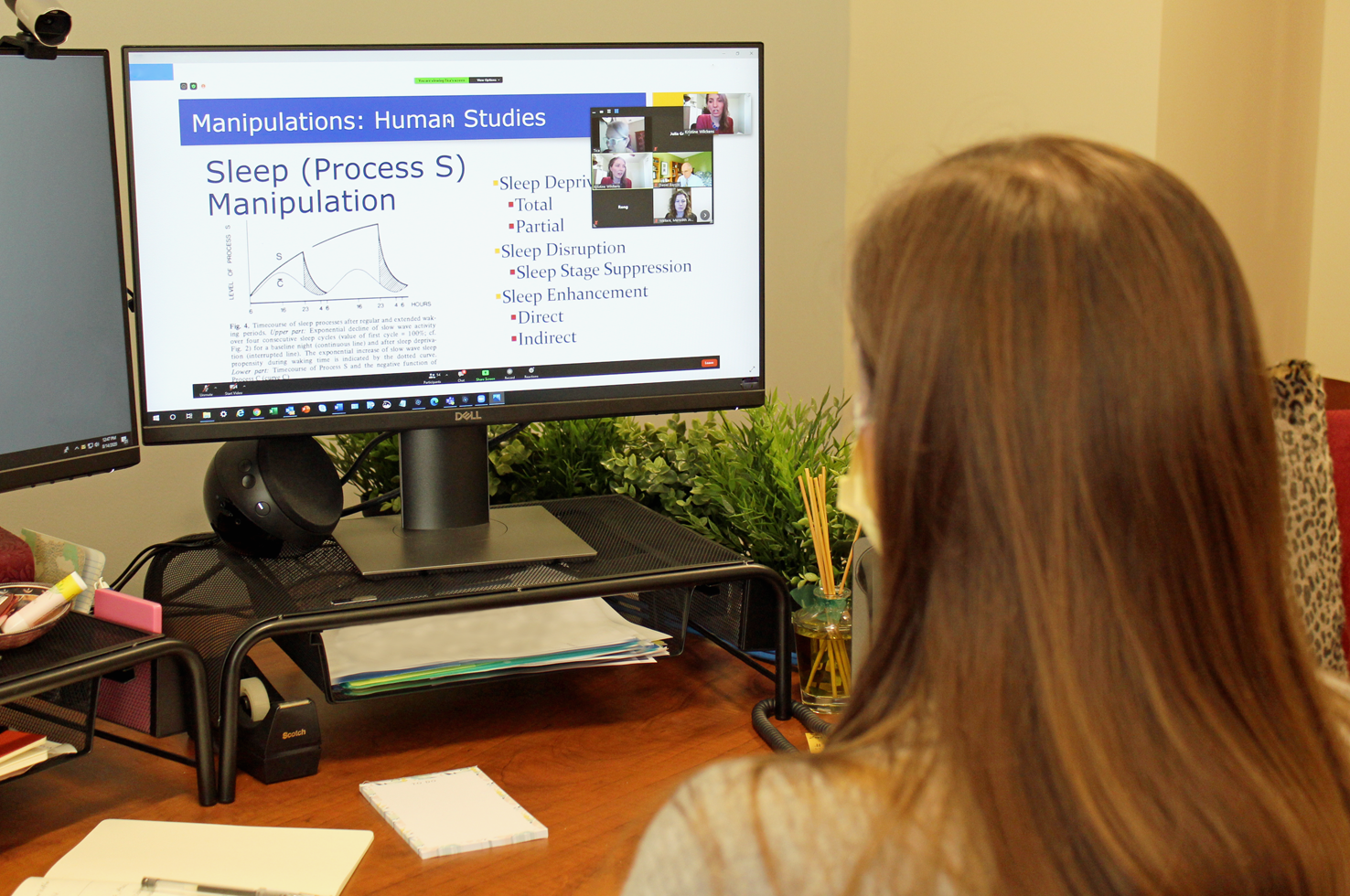Diverse Scientists Worldwide Join the Inaugural Summer SWIM, a Virtual Sleep & Circadian Science Workshop

In August 2020, 74 scientists from five continents joined the Department of Psychiatry’s virtual Summer SWIM (Sleep and Circadian Workshop on Indispensable Methods), led by Martica Hall, PhD (Professor of Psychiatry, Psychology and Clinical and Translational Science), and Daniel Buysse, MD (UPMC Professor of Sleep Medicine (Professor of Psychiatry and Clinical and Translational Science), of the University of Pittsburgh Center for Sleep and Circadian Science.
Summer SWIM is an intensive training program addressing state-of-the-art methodologies in human and animal research on sleep and circadian science. The robust, weeklong workshop comprised four live discussion events, 28 webinars and 11 meet-the-expert sessions. Participating Pitt Psychiatry faculty focused on sleep and circadian research included Peter Franzen, PhD, Brant Hasler, PhD, Yanhua Huang, PhD, Jessica Levenson, PhD, Ryan Logan, PhD, Colleen McClung, PhD, Adriane Soehner, PhD, Stephen Smagula, PhD, Meredith Wallace, PhD, and Kristine Wilckens, PhD.
We talked to Dr. Buysse, Dr. Hall, and workshop organizer Linda Willrich (Center Administrator, Center for Sleep and Circadian Science) about the origins of the workshop, how it went, what they learned, and what’s next.
How did the idea for Summer SWIM come about?
Dr. Buysse: The Center for Sleep and Circadian Science has an annual research day and spring retreat, and we had been rethinking whether these needed to occur yearly. We also saw a need to develop the pipeline in this area of research and increase access to a more diverse trainee population.
Dr. Hall: Many of us are concerned about the lack of diversity and inclusion in sleep in circadian science, and we’re committed to thinking of ways to share this work with a broader community, so we decided on this week-long workshop on methods and career development.
How did you get the word out about the workshop?
Dr. Hall: We reached out to institutions with diverse trainees. We contacted historically Black colleges and universities (HBCUs), as well as, for example, the University of California at Riverside, which is known for opening its doors to first-generation college students. We also worked with local contacts like Doris Rubio, PhD, at the University of Pittsburgh Clinical and Translational Science Institute (CTSI), who has a wide network of researchers at underrepresented institutions. We took a broad approach to diversity, equity, and inclusion in terms of race and ethnicity, sex and gender identity, and first-generation college graduates. Ultimately, 31% of our participants—the “SWIM team”—were from racial and ethnic communities that are underrepresented in science.
Where in their academic careers were SWIM Team members?
Dr. Hall: The SWIM Team was 16% pre- and post-baccalaureate, 30% graduate students, and 30% postdoctoral scholars and residents, with 16% MDs and 46% PhDs.
Which sessions stood out to you as particularly successful?
Dr. Buysse: The session on disparities in sleep health generated a lot of engagement. Attendees were challenged to consider how race, ethnicity and socio-economic status could affect sleep, and this inspired a very lively discussion. A few trainees raised the idea of continuing the conversation after Summer SWIM and participants signed up on the spot.
Linda Willrich: There was also a discussion on sleep disorders that was very active, with a lot of questions about effective treatment strategies. We found that the SWIM Team was really engaged in general throughout the week, and used the chat function a lot.
Were there any ah-ha moments or fun surprises?
Dr. Hall: We had intended for Summer SWIM to be in-person, but we had to make a quick pivot to a virtual format due to COVID, which actually enabled us to expand participation and grow the SWIM Team by 50%!
One of the most interesting elements was that our SWIM Team joined us from around the world and time zones were flipped. People were up very early and very late to participate, which was quite inspiring. Of course, it’s ironic that a workshop on sleep had people from Hawaii to Scotland up at all hours!
What’s next for Summer SWIM?
Dr. Hall: We’ll move from the pool to the podium, so to speak. In spring (or fall) 2021, topics for the second part of our event will include how to create, support, and engage in a diverse, equitable and inclusive research environment. We’ll also provide across the academic ladder and near-peer networking opportunities.
